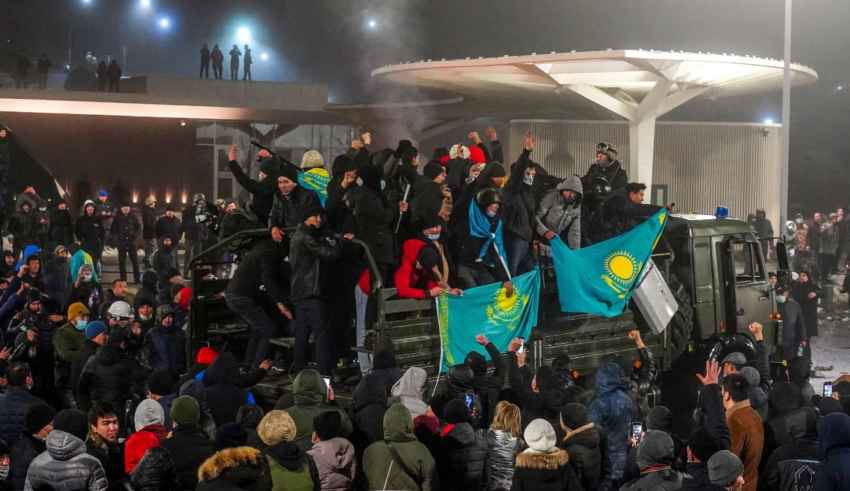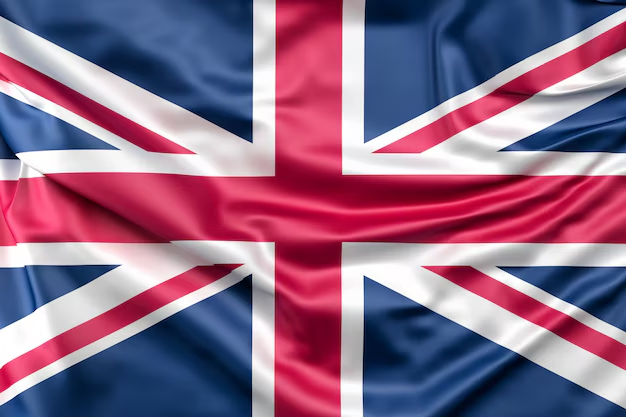
Kazakhstan has been a peaceful country since it gained independence after the Soviet retreat, it has been considered a pillar of political and economic stability in an unstable region and it’s the 9th largest country in the world, bigger than Western Europe, moreover, it is extremely rich in mineral resources such as oil and gas.
Recently, thousands of angry protesters have taken to the streets of Kazakhstan, this is the biggest crisis to shake the autocratic country in decades and what has been happening challenged President Kassym-Jomart Tokayev, who’s less than three years into his rule.
Mr. Tokayev former prime minister and foreign minister has been trying to carve out a stronger role for himself, which in turn, has disoriented Kazakhstan’s bureaucracy and elites, and contributed to the government’s slow reaction to the protesters’ demands, analysts say, in addition, his election was denounced as unfair by observers from the Organization for Security and Cooperation in Europe.
These protests have also destabilized an already volatile region where powerhouses such as Russia and the United States have been competing for influence for years, as a matter of fact, for the Kremlin, the events represent another possible challenge to autocratic power in a neighboring country as this is the third uprising against an authoritarian Kremlin-aligned nation, following pro-democracy protests in Ukraine and in Belarus; on the other hand, Kazakhstan also matters to the United States, seen that it has become a significant country for American energy concerns.
When it comes to the protests, they were sparked by anger over the decision of the authorities of the Mangistau region from January 1 to increase the price of liquefied gas from 60 tenges (3.78 hryvnia) to 120 tenges (7.56 hryvnia) per liter, the demonstrations were meant to be pacific, but they have intensified into something more significant and combustible: widespread discontent about the suffocating authoritarian government and a sharp critique of endemic corruption that has resulted in wealth being concern.
People are storming the main government building in Almaty, the largest city of the country, where as many as 190 people were injured during the clashes, the public health department said on Wednesday that at least 40 people were hospitalized during the protests Tuesday night, moreover, seven people, including four police officers, were in intensive care, 137 police officers and 53 civilians in total were injured.
In an attempt to restore peace, police fired tear gas and stun grenades in a bid to break up an unprecedented thousands-strong march in Almaty, the police opened fire after the protesters refused to disperse, estimating there were more than 5,000 protesters present, in total more than 200 people have been arrested since the protests began.
These protests have more deep-seated roots, including anger at social and economic disparities, exacerbated by a raging pandemic, as well the lack of real democracy.
As the protests have intensified, the demands of the demonstrators have expanded in scope from asking for lower fuel prices to including a broader political liberalization.
In short, they are demanding the ouster of the political forces that have ruled the country without any substantial opposition since it achieved independence from the Soviet Union in 1991.
The government has tried to quell the demonstrations by instituting a state of emergency and blocking social networking sites and chat apps, including Facebook, WhatsApp, Telegram, and, for the first time, the Chinese app WeChat, enacting what can be described as a “nation-scale internet blackout”, needless to say, public protests without permits were already illegal.
Tokayev said Wednesday that he would not flee the country under any circumstance, “Together we will overcome this dark moment in the history of Kazakhstan and emerge stronger,” he said, “We stand for a peaceful solution to be found to all problems in line with the constitution and laws and with the help of dialogue rather than through street riots and violations of laws, This is the goal of the steps being taken by” Tokayev added.
President Kassym-Jomart Tokayev has imposed a nationwide state of emergency that includes a curfew and a ban on mass gatherings, he also fired his powerful predecessor, Nursultan Nazarbayev, who held a national security role since stepping down as president, and the entire government also resigned.
Furthermore, Russian paratroopers have arrived in the country as part of a “peacekeeping” mission by a Moscow-led military alliance to help the president regain control of the country, according to Russian news agencies.
Kazakhstan’s president asked for the intervention from the Collective Security Treaty Organization (CSTO) an alliance made up of Russia, Armenia, Belarus, Kazakhstan, Kyrgyzstan, and Tajikistan, and late on Wednesday and it was swiftly approved.
There is little reliable information on the number of casualties, but local news agencies quoted a spokesperson for the police in Almaty, saying dozens of people were killed during attacks on government buildings.
It is not clear how many troops the CSTO will send or how long they will stay in the country but russian MP Leonid Kalashnikov told Interfax the troops would stay “for as long as the president of Kazakhstan believes it necessary” adding that they would mainly be engaged in protecting “infrastructure” in the country.
The Kazakh events come at a time when all eyes have been on a possible Russian intervention in Ukraine; the five former Soviet Central Asian republics have been largely without protest in their three decades of independence, with the exception of Kyrgyzstan, which has had several revolutions.
Kazakhstan has never held an election judged as free and fair by international observers. While it is clear there is widespread discontent, the cleansing of the political playing field over many years means there are no high-profile opposition figures around which a protest movement could unite, and the protests appear largely directionless.
Resources:
https://www.aljazeera.com/news/2022/1/5/kazakhstans-president-vows-robust-response-to-protests
protests erupt in Kazakhstan after fuel price rise, available at:
https://www.aljazeera.com/news/2022/1/4/protests-erupt-in-kazakhstan-after-fuel-price-rise
Kazakh protesters storm gov’t office in Almaty as crisis deepens, available at:
https://www.cbsnews.com/news/kazakhstan-riots-protests-almaty-resignation-nursultan-nazarbayev/
protests escalate in Kazakhstan; president’s home set ablaze, available at:
https://www.nytimes.com/2022/01/05/world/asia/kazakhstan-protests.html
https://us.politsturm.com/protests-in-kazakhstan-everything-you-need-to-know/
https://www.perild.com/2022/01/04/gas-riot-why-are-protests-in-kazakhstan/
https://news7d.com/how-the-protests-in-kazakhstan-started-and-why-are-they-important/
Kazakhstan unrest: dozens killed in crackdown, available at:
https://www.bbc.com/news/world-asia-59880166
Russian paratroopers arrive in Kazakhstan as unrest continues, available at:
https://www.theguardian.com/world/2022/jan/06/shots-heard-in-kazakhstan-as-protests-enter-third-day
By The European Institute for International Law and International Relations.














